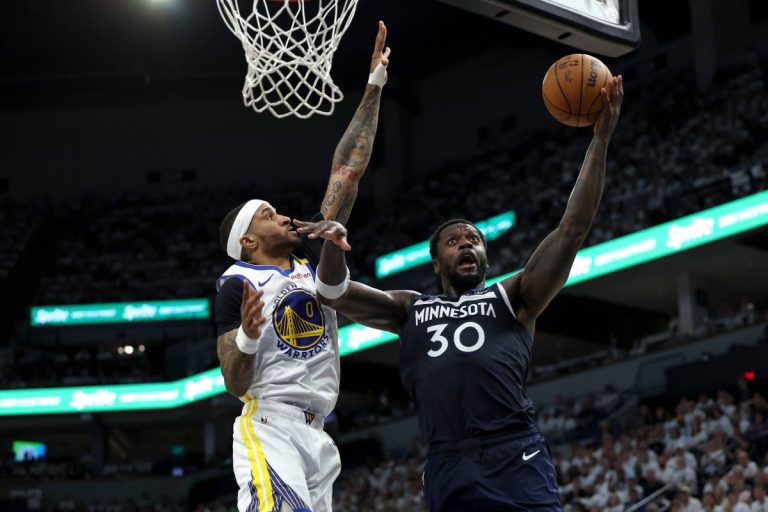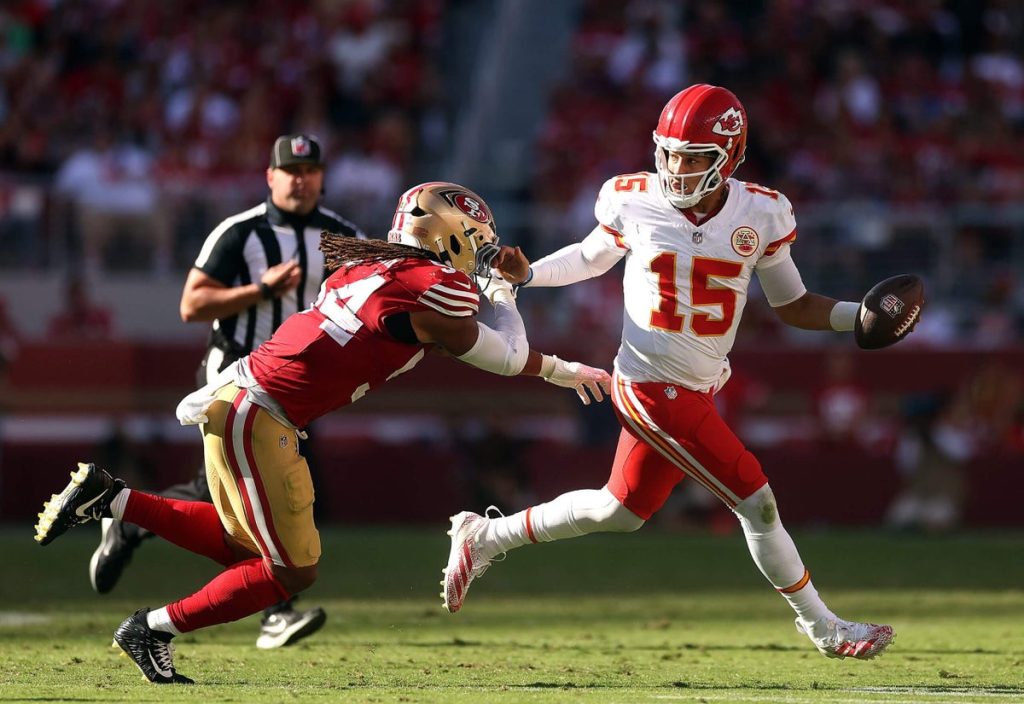The Athletic has live coverage of the 2025 NFL schedule release.
Eighteen games seems inevitable, or at least the NFL wants everyone to feel that way.
I remember getting that sense at the Landmark Hotel on Marylebone Road in London in 2010. The San Francisco 49ers were in town to play the Denver Broncos and the beat writers for both teams were invited to a sit-down with commissioner Roger Goodell. He fielded a variety of questions that morning but always seemed to steer the conversation back to an 18-game NFL schedule.
Asked about upcoming collective bargaining talks, he noted that expanding the season by two games would mean more revenue for the players.
Asked about the 49ers giving up a home game to play in London, Goodell agreed that was “painful” but noted that if the league moved to 18 games, teams would get their usual allotment of eight home games even if they played abroad.
Asked if he’d visited Trafalgar Square, Goodell said he hadn’t but that he knew Admiral Horatio Nelson would have been a huge fan of 18 games.
OK, he didn’t say that last bit, but the point is that the league has been aching for 18 — and getting us conditioned to the concept — for a long time now. It’s at the core of all its plans, from more international games to updated venues to new broadcast deals.

The problem is that the two groups that would be most affected — coaches and players — don’t want it. When The Athletic polled players last season, nearly 60 percent of responders said they weren’t in favor of an extra contest, mainly because they already feel maxed out with 17 games.
“No, because players barely make it through 17, so adding 18 — we don’t know what type of implications that’ll have long term,” one player said, “because you’ll see guys have high use one year and the whole next year they battle injuries. Physically, I think it’s too much, and I know from the standpoint of the NFL, they see the money, but they’re gonna lose a lot of star players to injuries.”
The players union seems to be digging in on the issue.
“No one wants to play an 18th game. No one,” NFLPA executive director Lloyd Howell said in February. “Some guys don’t want to play 17 just given the toll it has on their body and the lack of time to recover.”
Last season, the injury-ravaged San Francisco 49ers had just six players who started all 17 games. And that was on the high end for the league. The Buffalo Bills, Philadelphia Eagles and Los Angeles Rams had just one player in that category. The Cleveland Browns, New York Giants, Carolina Panthers and New England Patriots had two. Sixteen teams had five or fewer start the full season.
What should the NFL do? Today, the day the league’s clunky, 17-game schedules are released, I propose a solution. It’s one that indeed expands the schedule to 18 regular-season games (owners stand up and cheer wildly) … but states that players can participate in no more than 16 games (players stand up and cheer wildly).
I call it The 1816 Compromise.
It’s a rare everyone-wins scenario. The schedule grows by one game, which brings all the extra revenue — from broadcast deals, ticket sales, parking fees, etc. — the owners have been pining for. The fans get an extra week of real football. The players, meanwhile, not only won’t have to suffer the wear and tear of an extra game, they’ll play one fewer game than they’ve played the last four seasons (the entire arena rises and cheers wildly).
Other 1816 benefits:
• More strategy, more intrigue. If a player misses two games with, say, a thumb injury, that counts as the two contests he must sit out. Teams might decide to play their top-line players early under the assumption that many, or even most, will miss games with injuries anyway. Or maybe they sit them early in the season so they know they’ll be available during the critical homestretch when teams are jockeying for playoff position.
• More rest, more recovery. The NFL season already goes into February and an 18th game would make it longer. Having two mandated games off, along with bye weeks, would serve as rest stops for players. Last season, 49ers linebacker Fred Warner played most of the season with an ankle fracture that was slow to heal because he played on it every week. Warner, who seemed like a Defensive Player of the Year candidate before the injury, was not as good after it. A multi-week hiatus might have given him the time he needed to recover.
• More opportunities. The compromise would guarantee that younger or lesser-known players get to start at least two games. Maybe that means expanding practice squads from 16 players. It’s another win for the players union.
• Fewer asterisks. Limiting players to 16 games will get individual records back to where they were from 1978 to 2020. Eric Dickerson’s single-season rushing record (2,105 yards), Calvin Johnson’s single-season receiving performance (1,964) and LaDainian Tomlinson’s single-season touchdown mark (31) wouldn’t be compromised by someone playing two more games than them.
Is it a perfect plan? Oh, I can envision some grumbling.
For instance, teams might have trouble signing players to new deals in a league in which revenue is greater but the players’ overall workload has decreased. That might be a hurdle initially, but the market ought to solve that over time.
Television networks, meanwhile, might be hesitant to pay top dollar to broadcast a game that doesn’t include a team’s top quarterback. Fans would have the same issue. No one wants to shell out $600 to take their family to a Kansas City Chiefs game only to find that a healthy Patrick Mahomes is in street clothes and Gardner Minshew is starting instead.
So perhaps an exception is made for the faces of the NFL, the quarterbacks. After all, the 1816 proposal is about player safety and there are already all sorts of rules to protect quarterbacks. And maybe we grant an exception for the specialists as well. They don’t suffer the cumulative pounding other players do — four of the five oldest players currently on NFL rosters are specialists — and owners definitely wouldn’t want to keep multiple long snappers and punters on the payroll.
But as noted above, most players don’t play a full season anyway. Some of that is due to strategy — playoff-bound teams often rest starters in their regular-season finales.
More is due to attrition. The 10 highest-paid 49ers players last season — the marquee names fans buy tickets to see, the ones networks pay billions to broadcast — missed a combined 77 starts.
Eighteen games? Seventeen already seems like too many.
(Photo of Fred Warner and Patrick Mahomes: Ezra Shaw / Getty Images)

















